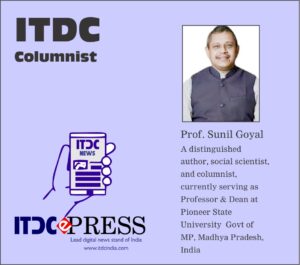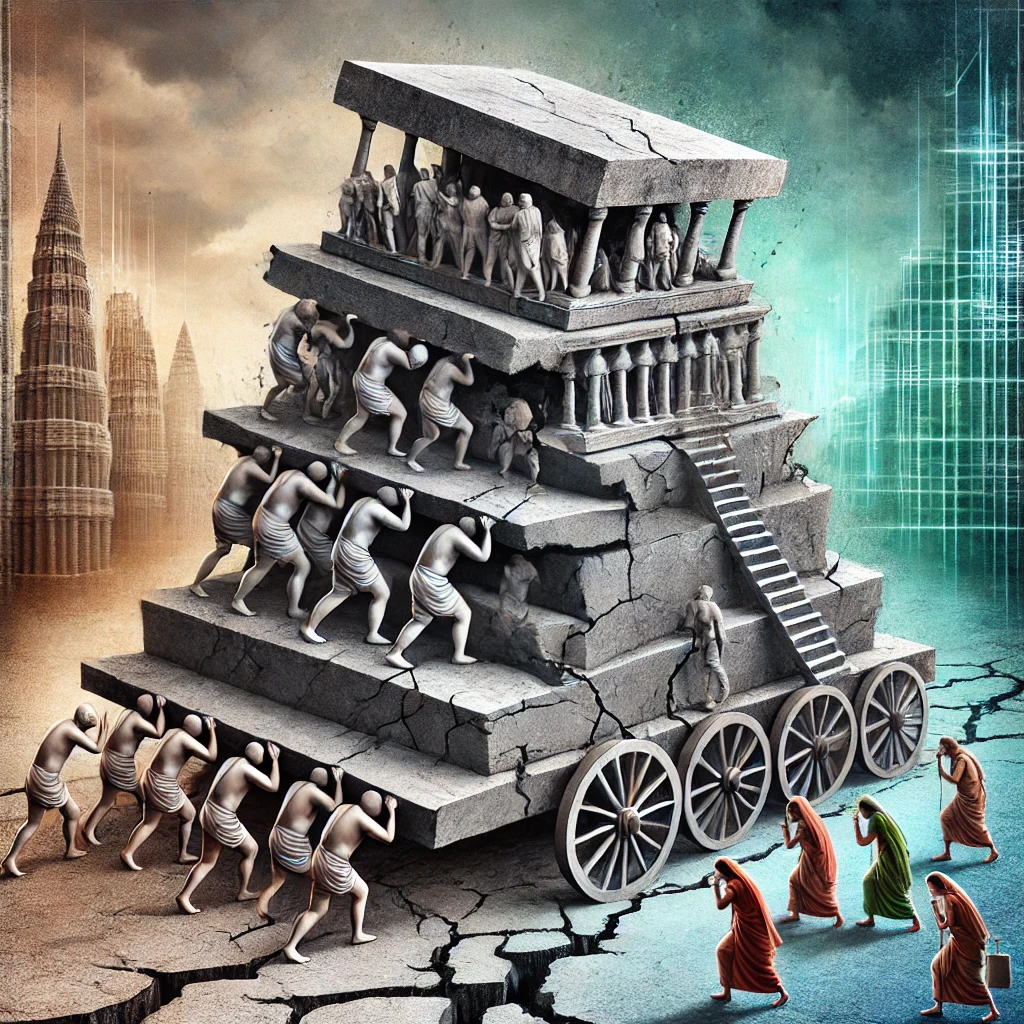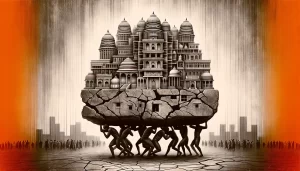Dr. Bhimrao Ramji Ambedkar’s Perspective on Social Reconstruction
The framework of Ambedkar’s social structure is based on a just social system that provides individuals with freedom and ample opportunities for self-development, and which establishes the principles of social equality and fraternity. He did not support an economy where a person’s profession is determined not by their ability, but by their birth, where one group traditionally exploits another economically, and which opposes the principles of labor freedom.
Dr. Ambedkar envisioned creating a society that was as good for the upper caste as it was for the laborer, as good for men as it was for women. Essentially, Ambedkar wanted to build an integrated society. After achieving political freedom, the idea of reconstructing the Indian social framework on the principles of liberty, equality, and fraternity had already gained consensus during the national movement. However, giving it a concrete shape was a challenging task. This responsibility was fulfilled by Dr. Ambedkar after independence.
In Dr. Ambedkar’s view, the inequality, exploitation, untouchability, social discrimination, and the degradation of women and Dalits in Indian society were the result of a traditional social structure. He deemed the elimination of the fourfold varna and caste system essential for the progress of Indian society. He argued that the varna system is a chain that binds Hindu society and is unjust. The concept of varnas (castes) is not divine, and the Rigvedic theory of the origin of varnas is false. The caste system is based on social discrimination, promotes dependence, hinders the natural development of individuals, and violates the principle of equal opportunities for personal development. It is a collection of mandatory services and restrictions deliberately designed to keep the majority of people in the service of a few. It is anti-Shudra, denying Shudras social, political, and economic rights. It has been said that where Shudras reside, Vedic chanting should not be performed, and even if they are guests, Brahmins should not give them food unless they perform some work.
Dr. Ambedkar firmly believed that the rigid structure of the varna system manifests in the caste system, which is anti-social. Caste does not divide labor but laborers. From an economic perspective, caste is also a harmful institution. According to Ambedkar, as long as caste exists, Hindu society can never be an organized and strong society. Caste promotes division and segregation in society. Hence, to protect the existence and ensure the progress of Hindu society, the caste system must be abolished. The restricted access to caste privileges limits its potential for growth.
Ambedkar saw the real cause of the degradation of women in society as being rooted in the Brahmin varna. In the fourfold varna system, even the rules for punishment were biased for different varnas. The varna system promotes division and disintegration in society.
Ambedkar said that the ashrama system, which divides life into four equal stages and assigns specific duties and responsibilities to each, may appear good on the surface but has several flaws. In his words, caste divides society into distinct, permanent, endogamous units. According to him, society is not made of individuals but of classes. The caste system was the creation of people who, through cunning and manipulation, succeeded in dominating other social groups and, in order to satisfy their ego and make their dominance permanent, invented the caste system. According to Ambedkar, the root cause of untouchability lies in the concept of impurity. Due to untouchability, the social status of the untouchables became so low that upper-caste Hindus did not consider them worthy of participation in their religious and social activities. The national constitution abolished untouchability, and the Untouchability Offenses Act was passed in 1955.
In Ambedkar’s words, traditional priesthood is the embodiment of Brahmanism. If Hinduism is to be saved, it is necessary to abolish it. Brahmanism is a poison. He was a strong advocate that without freedom,
-Prof. Sunil Goyal
(A distinguished author, social scientist, and columnist, currently serving as Professor and Dean at the School of Social Sciences and Management Studies at Dr. B.R. Ambedkar Social Science University, Dr. Ambedkar Nagar (Mhow), District Indore, Madhya Pradesh, India.)

Disclaimer: The views and opinions expressed in the article are those of the author and do not necessarily reflect the official policy or position of ITDC News, ITDC India ePress, Integrated Trade DC News and ITDC India Groups, Groups firms & Companies if related any. ITDC News, ITDC India ePress, Integrated Trade DC News and ITDC India Groups, Groups firms & Companies if related any are not responsible for the accuracy, completeness, or validity of any information presented by the author. Readers are advised to independently verify facts before making any conclusions.








